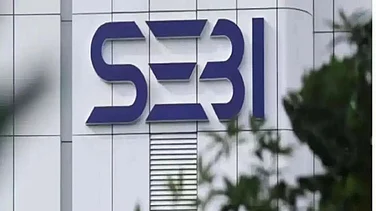During a visit to the hallowed halls of the Finance Ministry not very long ago, KV Subramanian and his wife were admiring the names of the illustrious economists carved on a big brown board in one of the more spacious offices of North Block in the capital. In 2018, the couple came back, but this time, it was his name that was being engraved on the board as India’s chief economic adviser. Subramanian now is the youngest to have achieved that distinction.
It’s not every day that someone who was the first person from his family to go to a university becomes the chief economic adviser (CEA) of the country. In a recent statement, Subramanian described his life as “living the Indian dream.”
Subramanian’s father, the youngest child of the family, was unable to pursue higher education after losing his father at a very young age. Immediately after completing school, he joined the Indian Railways in the clerical grade and retired as an officer.
As he relates the hardship that his father faced while growing up, he also talks about how he ensured that it did not impact his sons or their education. Both Subramanian and his younger brother went on to become professors. Subramanian, who was a professor at the Indian School of Business (ISB) before becoming the CEA, had always wanted to be a teacher.
“My education at IIT (Indian Institute of Technology) was subsidised on taxpayers’ money to the extent of almost Rs 4 lakh. I paid a pittance of Rs 365 each semester. So, I owed it to the nation that gave me that education. When I went to the US for my research, I always knew that I would come back to India. In fact, I placed a bet of $2,000 with my then roommate who was sure I would never return,” Subramanian recounts with a laugh.
As a professor, too, he has always tried to direct his students towards policymaking as
a career.
“If you see the papers he has authored, there is always an element of utility. He always talked about topics that could be useful. For example, we have worked on debt waiver. He was always concerned about policy and the implications of those papers. It was always there in his mind that economic research should be useful to policy and society at large,” Prasanna Tantri, who did his PhD under Subramanian and authored several papers with him, says.
Subramanian has had a stellar academic record—in addition to being an alumnus of IIT Kanpur, he also holds a Master of Business Administration degree and a Doctor of Philosophy (PhD) in financial economics from the University of Chicago Booth School of Business. His PhD supervisors were Luigi Zingales and Raghuram Rajan. He is also an alumnus of the Indian Institute of Management Calcutta.
Slowdown and Covid
Subramanian’s tenure was marked by a rough patch in the Indian economy. The slowdown that had begun before the pandemic only got worse after the COVID outbreak. Several studies and reportage have shown that the working class, especially the migrant workers, was the worst impacted by the pandemic. Experts and economic commentators have pointed out that while some markers do point towards recovery, but several of these are aided by the low-base effect.
According to Subramanian, he has been at the helm of India’s economic affairs at the most tumultuous time, as the world economy got ravaged by the once-in-a-century pandemic.

“I think initiating second-generation reforms during my tenure was instrumental. I have credibly upheld the economic spirits and in fact predicted the V-shaped recovery for the Indian economy in September 2020. Piling on the misery when something is down is very easy… Leadership gets demonstrated in the ability to instill belief and positivity at the toughest of times,” Subramanian says in his defence.
Subramanian has helmed three Economic Surveys as the CEA—2018-19, 2019-20 and 2020-21. His last Economic Survey had made a strong pitch for an increased health outlay because of the pandemic and pushed for a regulator for the sector. It had also pitched for counter-cyclical fiscal policy which resulted in the government announcing large-scale public spending and fiscal expansion to fight the economic impact of the pandemic.
“The reforms initiated as part of Atmanirbhar Bharat have all stemmed from the three Surveys I have authored,” Subramanian says with satisfaction.
The US Experience
He had been working at ICICI Bank for two years before he decided to pursue his PhD. While he was doing well at the bank and his work was being noticed by then CEO KV Kamath himself, Subramanian was hardly drawn to the security and prosperity of a corporate job. His eyes and heart were set on research. He quit his job at ICICI Bank in 2001.
“We were expecting our first child at that time and my mother asked me, ‘Isn’t there a full stop to what you want to achieve?’ I remember sitting in the ICICI treasury and projecting my life 25-30 years forward, just looking at two scenarios. One where I am the CEO of ICICI and a book with someone else’s name. Second, where I was a nondescript academic, observing a colleague of mine becoming the CEO. I asked myself which would be the bigger regret for me. That made it very clear to me that if I did not come up with ideas, I would regret it far more, even if I were a CEO,” Subramanian says.
While in the US, Subramanian observed that although no society is perfect, the US was more meritocratic than most others. On the flip side, the pursuit of absolute commercial self-interest or the concept of greed being good was unfathomable for him. It was unsuitable to his philosophy.

A Different Model
Subramanian says that he believes in a model of capitalism that marries the invisible hands of markets with the hand of dharma. “Dharma not in a religious sense but as the immutable laws of the universe. Not violating them is what generates sustained prosperity for a nation or a society. There are aspects of US capitalism that are worth emulating and there are also those aspects that should not be emulated. Markets work 90% of the times in effectively allocating resources. But the 10% where they do not work is the consumerism and greed,” Subramanian explains.
According to him, the societies that have been able to sustain are the ones that follow a model of governance that does not prohibit profit-making but, at the same time, encourages benefiting the community in the process.
According to Tantri, Subramanian’s peculiarity lies in the fact that one cannot place Subramanian in any specific ideological bracket.
“Even in his work on debt waiver, he has highlighted both the aspects. And that’s the approach he has taken in policymaking as well. He has argued in favour of production-linked incentives and trade restrictions at times. A purist will always argue against any kind of tariff imposition,” Tantri said.

Man Manager
A die-hard cricket fan, Subramanian managed the work stress associated with his chair by following the example of MS Dhoni, often dubbed ‘Captain Cool’. From press conferences to the Economic Surveys, he has always found cricket anecdotes to quote from.
The private life and space of an educator is vastly different from a very public and managerial role of a CEA. The latter is a leadership role, he says. “It has been a phenomenal learning. Before this, I did not even manage a set of more than four or five people. And here I was, managing a much larger team. I think, being a huge cricket fan, various players have inspired me at various points in this leadership role,” he says with a smile.
Subramanian is a strict professor, he says. He considers himself old school as he believes in “tough love”. Be it his students or his children, he shows his love through pushing them to their potential. In fact, his elective course at the ISB is infamous for being the toughest.
“Oh, Subbu (Subramanian) was a very strict professor,” Tantri says while laughing. “But he always ended up getting the best professor award which is based purely on student voting. The amount of assignments he gave was crazy. You couldn’t come two minutes late to his class.”
Kid in a Candy Store
“I have always been like a kid in the candy shop. I wish I could share this achievement with my father. Every committee that I was part of before becoming the CEA, my dad used to sit me down and ask me the tiniest of details of those reports and what each finding meant,” Subramanian says, smiling.
He insists that it’s possible to climb the ranks and achieve success without a network. He derides people in New Delhi who belong to what is popularly known as the ‘Lutyens circle’—a moniker for the group which comes with the advantages of being born in an elite family. “I have never been a part of them nor do I feel the need to. I come from a very humble background and have come so far by sheer hard work. And that’s why I don’t feel the need to hold on to this forever,” the CEA says.
The CEA recently announced that he would be returning to academia after the successful completion of his three-year term as CEA. Subramanian took charge on December 7, 2018, five months after his predecessor Arvind Subramanian abruptly resigned citing family commitments.
“It has been a delight to work with Subramanian. His academic brilliance, unique perspectives on key economic as well as policy matters and reformist zeal are noteworthy. Wishing him the very best for his coming endeavours,” Prime Minister Narendra Modi had tweeted after the CEA announced his decision.
Subramanian’s term ends on December 17 and he would continue in office till then. He says that as his son is now in Class 11, he had planned his tenure as a three-year one so that he could be with his son during his most stressful school years. He, therefore, did not want an extension of his term and would be going back to teaching at the ISB. “I announced it early to ensure a smooth transition. I haven’t resigned or stepped down,” he says with a laugh.































